Geetha Ganesan
Proof of Reference(PoR): A unified informetrics based consensus mechanism
Jul 01, 2021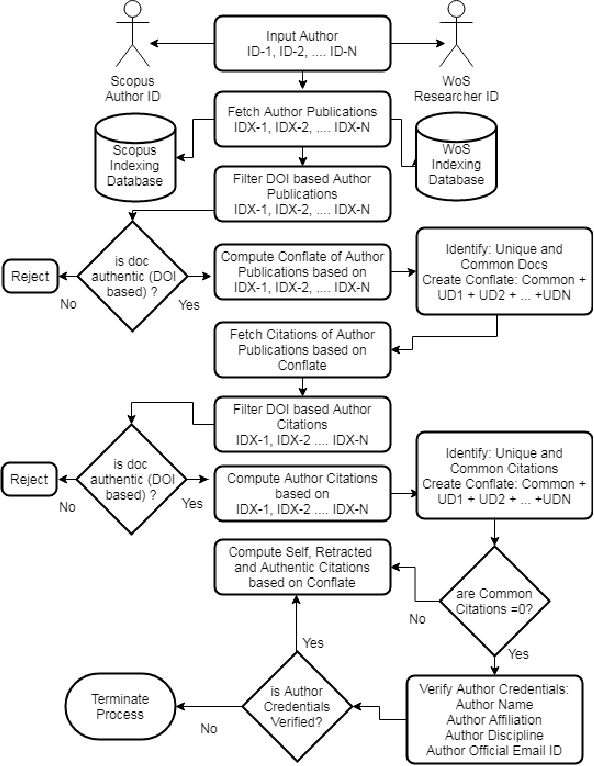
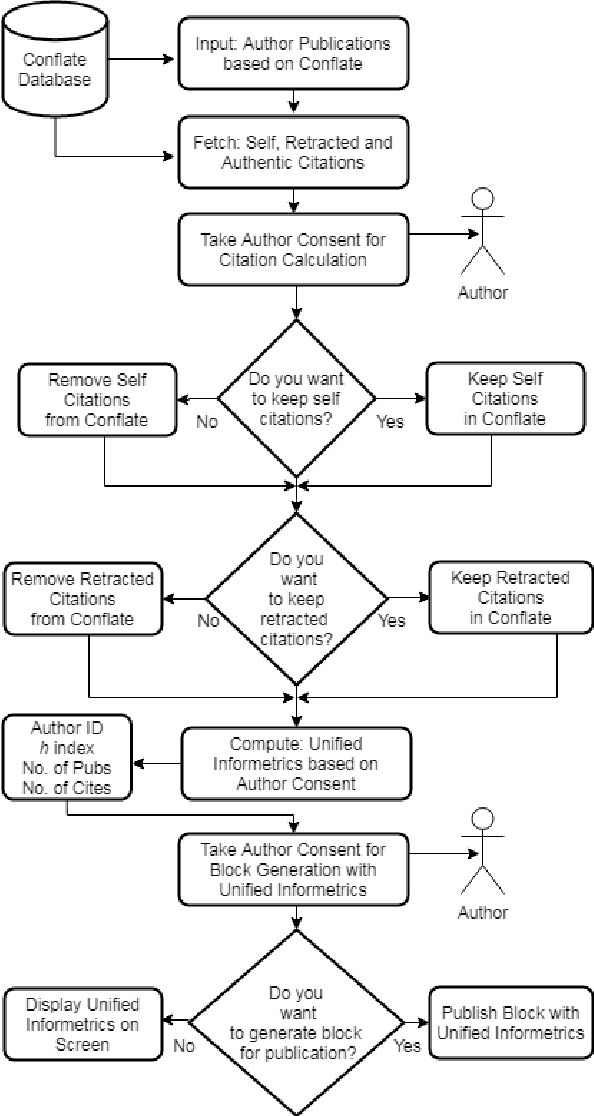
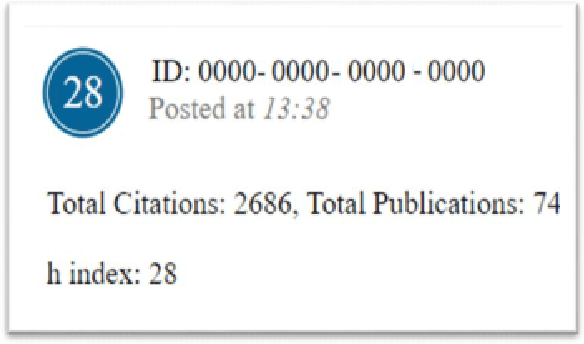
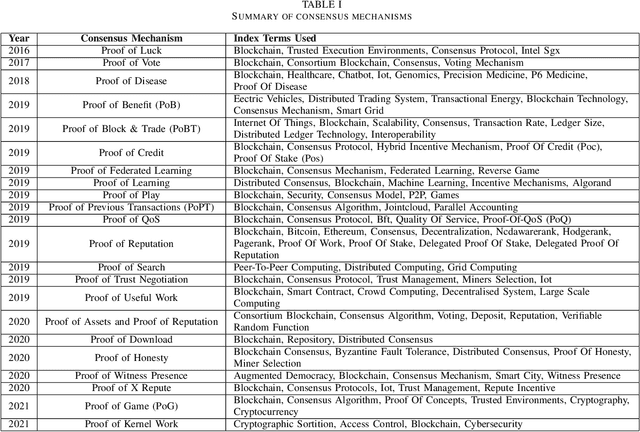
Abstract:Bibliometrics is useful to analyze the research impact for measuring the research quality. Different bibliographic databases like Scopus, Web of Science, Google Scholar etc. are accessed for evaluating the trend of publications and citations from time to time. Some of these databases are free and some are subscription based. Its always debatable that which bibliographic database is better and in what terms. To provide an optimal solution to availability of multiple bibliographic databases, we have implemented a single authentic database named as ``conflate'' which can be used for fetching publication and citation trend of an author. To further strengthen the generated database and to provide the transparent system to the stakeholders, a consensus mechanism ``proof of reference (PoR)'' is proposed. Due to three consent based checks implemented in PoR, we feel that it could be considered as a authentic and honest citation data source for the calculation of unified informetrics for an author.
A weighted unified informetrics based on Scopus and WoS
Jun 02, 2021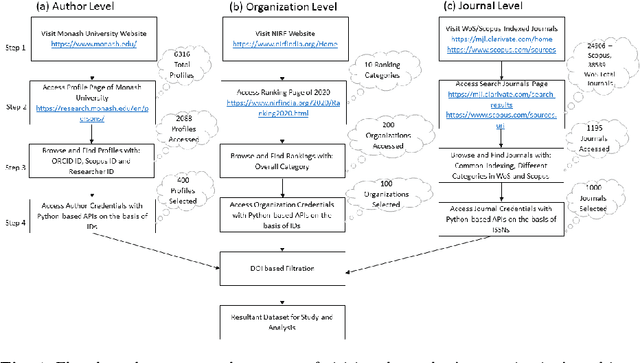


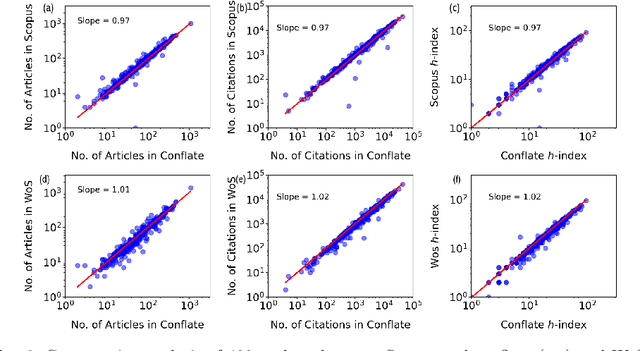
Abstract:Numerous indexing databases keep track of the number of publications, citations, etc. in order to maintain the progress of science and individual. However, the choice of journals and articles varies among these indexing databases, hence the number of citations and h-index varies. There is no common platform exists that can provide a single count for the number of publications, citations, h-index, etc. To overcome this limitation, we have proposed a weighted unified informetrics, named "conflate". The proposed system takes into account the input from multiple indexing databases and generates a single output. Here, we have used the data from Scopus and WoS to generate a conflate dataset. Further, a comparative analysis of conflate has been performed with Scopus and WoS at three levels: author, organization, and journal. Finally, a mapping is proposed between research publications and distributed ledger technology in order to provide a transparent and distributed view to its stakeholders.
 Add to Chrome
Add to Chrome Add to Firefox
Add to Firefox Add to Edge
Add to Edge